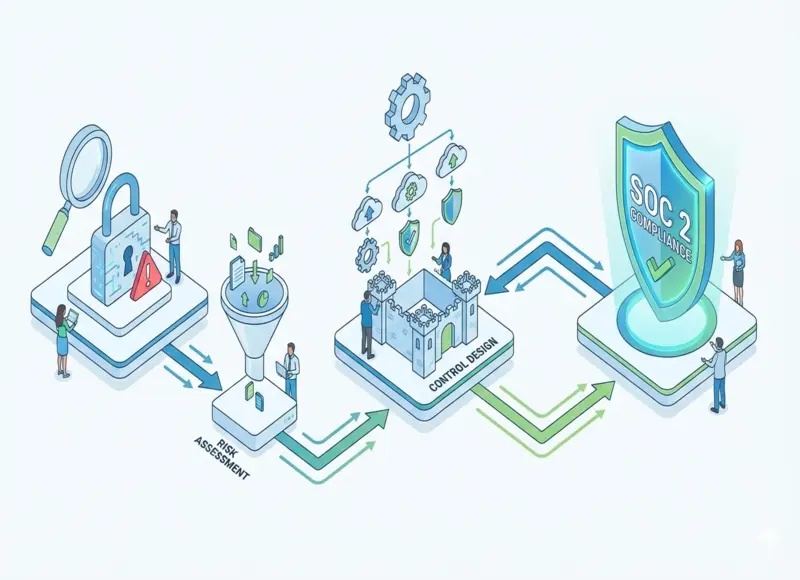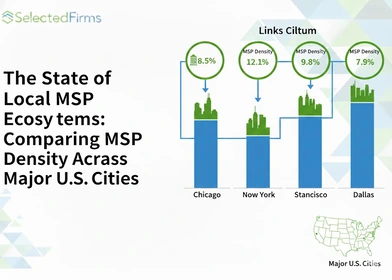Table of Contents
Learn how obtaining AWS Architect Certification can transform IT companies, elevating their skills and capabilities in delivering advanced cloud solutions.

Organizations are actively seeking talented cloud computing and AWS professionals. LinkedIn has revealed that "cloud and distributed computing" topped the list of sought-after skills in both 2016 and 2017. Dice reported that job postings for the AWS cloud platform increased by 76% between 2015 and 2016. For those qualified for these positions, salaries are high: BusinessInsider lists 12 positions in cloud computing that pay more than $100,000 per year for AWS-trained professionals.
Working as an AWS Architect means leveraging your skills and expertise to develop advanced cloud-based solutions and migrate existing workloads to the cloud. But what does this actually look like on a typical day for an AWS Architect? What can you expect once you have the training and land the job? Read on to find out. The AWS cloud platform supports a vast number of organizations in around 190 countries, and AWS Architects earn an average salary of about $126,000 per year. Professionals with AWS certification deeply understand AWS architectural principles and services. They can design, plan, and scale AWS cloud implementations using best practices recommended by Amazon.
AWS Cloud Architect certification training will enable you to master the core skills required for designing and deploying dynamically scalable, highly available, fault-tolerant, and reliable applications on one of the top cloud platform providers—Amazon Web Services (AWS). You will learn the fundamentals of the AWS cloud platform and become an expert in understanding AWS terminologies, concepts, benefits, and deployment options to meet your business requirements. You will also get an overview of AWS DMS (Database Migration Service), how the AWS Schema Conversion Tool works, and the various types of AWS DMS; how to build, implement, and manage scalable and fault-tolerant systems on AWS; and how to select the appropriate AWS service based on data, compute, database, and security requirements.
Impact of AWS Architect Certification
This article will cover the following topics that will impact and provide you with a clear understanding of what it takes to become an AWS Architect:
1. Meetings with sales and customers
2. Problem-solving
3. Variety
4. Time management
5. Staying current
6. Getting started
Why AWS Architect Certification Is Necessary for IT Companies
Businesses are actively pursuing top talent in cloud computing, and AWS has emerged as the world's leading cloud service provider. According to Dice, LinkedIn has identified "cloud and distributed computing" as a key talent in demand, with AWS witnessing a 76% spike in job posts between 2015 and 2016.
For IT firms, hiring AWS-certified architects is more than just following trends; it's about future-proofing the business. Cloud-based solutions have been crucial for growing operations, and AWS Architects play an essential role in using AWS tools to create secure, scalable, and highly available solutions. Furthermore, the average AWS Architect makes approximately $126,000 annually, showing their value to companies.
Meetings with Sales and Customers
As an AWS Solutions Architect, your job involves architecting solutions. Therefore, part of your days will be spent meeting with business or potential clients. These may be face-to-face meetings or conference calls to understand their issues and needs. This depends on the organization you work for and your specific role. Some AWS Solutions Architects focus more on products rather than clients, but most help design solutions for client problems.
Your work for clients will also depend on where you're working and your tasks, as well as where the client is in their level of AWS adoption. They could be in the early stages, having high-level discussions, or further along into the implementation phase.
Problem-Solving
Most of your responsibilities will be designing solutions to address client issues and business goals, developing technical solutions, and pre-sales deliverables supporting client objectives. As the SA, you'll create solution designs and guide AWS architectural best practices. You'll estimate costs, identify cost control mechanisms, and select the appropriate AWS service based on data, compute, database, or security requirements.
You'll likely spend part of your days designing and arranging scalable, highly available, and fault-tolerant systems on AWS. You'll identify the lift and shift of existing on-premises applications to AWS and manage data transfer to and from AWS. You might also be asked to provide guidance on performance, cost, disaster recovery, or security concerns.
Variety
Despite the tasks mentioned above, your days will likely be unpredictable due to the various tasks involved. You might spend part of the day assessing or planning new conditions. Depending on your job, you could be in meetings or even traveling to on-site client meetings. You could write scripts, work on migrations, stay updated on new AWS features, or troubleshoot issues. You'll also work with various in-house teams, including sales and engineers.
Time Management
With the variety in your typical day, excellent time management skills are essential. As an AWS Architect, planning your day, managing your time on tasks, and prioritizing your projects will be crucial.
Staying Current
AWS is constantly evolving, meaning part of your day could involve learning and researching new services and features launched by AWS and staying on top of best practices to improve existing AWS solutions. You'll have blogs or discussion boards to update you on new developments and best practices, or other SAs discussing ways to overcome challenges. If you're already working as an AWS Architect, you might need additional training to stay current with updates and recent changes.
Getting Started
Does this typical day sound appealing to you? If so, take the first step by enrolling in the AWS Training Course. You'll learn key concepts, latest trends, and best practices for working with AWS architecture, becoming an industry-ready AWS Certified Architect prepared for your first job. Practice tasks and live projects will provide you hands-on experience with the AWS management console, giving you an overview of the AWS platform and diving into its individual components: IAM, VPC, EC2, EBS, ELB, CDN, S3, EIP, KMS, Route 53, RDS, Glacier, Snowball, CloudFront, DynamoDB, Redshift, Auto Scaling, CloudWatch, Elasticache, CloudTrail, and Security.
Mastering Core AWS Skills for Client Success
The AWS Architect Certification provides IT professionals with the skills to develop, install, and maintain cloud-based systems that match modern business requirements. IT companies gain from recruiting AWS-certified employees because they can:
Develop Custom Cloud Solutions: With a thorough understanding of AWS architectural principles, skilled workers may create solutions tailored to specific business objectives, precisely solving client pain points.
Implement Scalability and Security Best Practices: AWS architects are educated to develop reliable, fault-tolerant systems, per Amazon's recommendations. This provides smooth performance and safeguards customer data through strong security measures.
Deploy modern tools: AWS certification gives a complete understanding of the platform's major services, such as EC2, VPC, and RDS. For IT companies, this means staying ahead of technological innovation. Here, resources such as SAA-C03 Exam Dumps can be invaluable in gaining the expertise needed to excel in deploying and managing these services.
Enhancing IT Company Capabilities with AWS Expertise
AWS Architects' normal days include more than just technical responsibilities. They serve as strategic consultants to their organization and clients, assisting IT companies in discovering new prospects through cloud innovation. With deep knowledge of AWS services such as IAM, EC2, S3, RDS, and CloudFront, these certified experts can create architectures that meet and exceed client expectations.
For IT companies, this means providing innovative cloud services that scale dynamically while improving cost-effectiveness. By creating disaster recovery plans, automating system scalability, and providing top-tier security standards, AWS architects help businesses strengthen their value proposition and build long-term client relationships.
Wrapping up
The career outlook for an AWS Architect is exceptional. With many positions available, you'll likely become a sought-after professional with opportunities to advance your AWS career path or move to another organization once you're in the field and prove yourself as a knowledgeable and experienced professional.
Recent Blogs
Scaling Smarter: How Property Management Software Simplifies Rental Management
-
10 Feb 2026
-
6 Min
-
34
The State of Local MSP Ecosystems: Comparing MSP Density Across Major U.S. Cities
-
06 Feb 2026
-
7 Min
-
260









